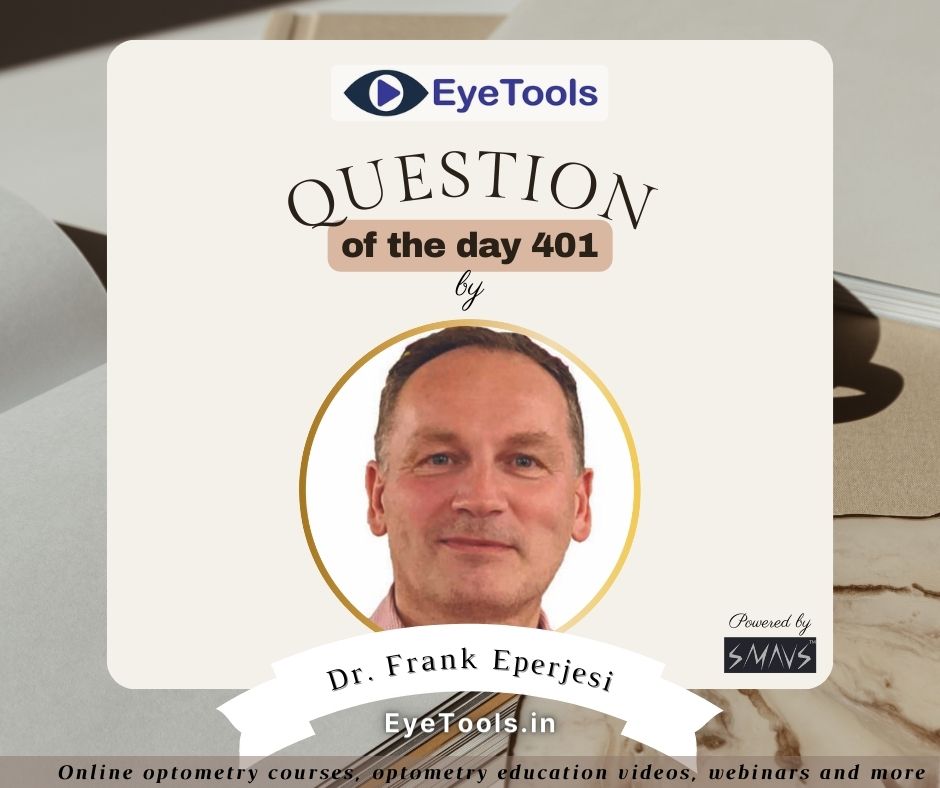
Welcome to question of the day #401
I own a community eye care practice. I want to make sure my practice is prosperous. I want to make sure that all the visual needs of my patients are met but I don’t want to recommend new glasses unless patients will benefit. Do you have any tips as to how I can balance the success of the practice with the needs of my patients?
That’s a great question and is at the heart of all community practices throughout the world. How to ensure that the finances of the practice are good and that the needs of the patients are met without unnecessary prescribing of glasses. This is a fine and hard balance. Unnecessary prescribing will lead to upset patients, bad word of mouth, loss of patients, and a bleak future business outlook.
We all know that if a patient can perceive an improvement in vision with a new prescription in the practice we can confidently recommend new glasses and the patient is very likely to purchase glasses.
Sometimes though we need to point things out to patients that they are not aware of. Sometimes we need to point out a shortfall or problem with their current glasses that goes beyond seeing better. We need to remember that patients are not frame or lens experts and there are many things they don’t know.
So, at the start of an eye examination, I will look at the current glasses and check the integrity of the frame. I look at the side hinge. Is it loose? Are the frames about to fall apart? Are they heavier than they need to be? Are they a good fit? Do they look nice? If a bifocal, is the segment in the correct position? Is it the right size? Are the frames unnecessarily large making the glasses heavy? If the answer to any of these questions is no I advise the patient how I can make things better for them with new glasses.
I look at the lenses. Is there an antireflection coating? If not I discuss the benefits of an antireflection coating and how this could be added to new glasses. Are the lenses overly thick? I talk about the benefits of comfort and the appearance of thinner and lighter lenses. Are the lenses scratched? If so I talk about the effects of scratches on vision and contrast.
I ask if they are troubled by glare from the sun. If they are I will discuss the benefits of photochromics, especially for people with cataracts and/or macular degeneration.
As eye care specialists perhaps sometimes we concentrate too much on improvement in vision at the cost of other things. Improvement in vision is an important element of recommending new glasses but it is not the only one.



1.jpg)



.jpg)
.jpg)



_(Instagram_Post).jpg)
.jpg)
_(1080_x_1080_px).jpg)


with_UP_Cabinet_Minister_Sh_Nand_Gopal_Gupta_at_OpticsFair_demonstrating_Refraction.jpg)
with_UP_Cabinet_Minister_Sh_Nand_Gopal_Gupta_at_OpticsFair_demonstrating_Refraction_(1).jpg)

.jpg)








.jpg)



.png)




